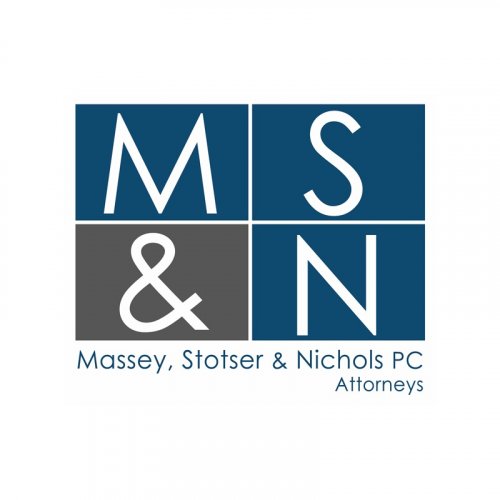Best Sanctions & Export Controls Lawyers in Alabama
Share your needs with us, get contacted by law firms.
Free. Takes 2 min.
Or refine your search by selecting a city:
List of the best lawyers in Alabama, United States
About Sanctions & Export Controls Law in Alabama, United States
Sanctions and export controls law is a specialized legal field that governs the transfer of goods, technology, software, and services across national boundaries, as well as any activities involving parties subject to government sanctions. In Alabama, as in the rest of the United States, these laws are primarily federal in origin. They are designed to protect national security, foreign policy interests, and compliance with international agreements. Businesses, universities, and even individuals in Alabama must understand their obligations to prevent inadvertent violations that can lead to serious legal, financial, or reputational consequences.
Why You May Need a Lawyer
Hiring a lawyer with experience in sanctions and export controls can be crucial in several situations. Businesses involved in international trade may face complex regulations when exporting goods, technology, or even providing services to foreign clients or partners. Individuals or organizations in Alabama might also need legal guidance when working with restricted countries, persons, or entities subject to US or international sanctions. Other circumstances where legal counsel is necessary include internal compliance audits, responding to government investigations, setting up compliance programs, making voluntary disclosures, or defending against enforcement actions or penalties for alleged violations.
Local Laws Overview
Although sanctions and export controls are governed largely by federal agencies such as the U.S. Department of Treasury's Office of Foreign Assets Control (OFAC), the U.S. Department of Commerce's Bureau of Industry and Security (BIS), and the U.S. Department of State's Directorate of Defense Trade Controls (DDTC), the application of these laws can have unique impacts in Alabama. Alabama’s role as a hub for aerospace, manufacturing, defense, and research means that local companies and institutions may routinely interact with sensitive technologies or foreign entities. Alabama state law intersects with federal requirements when it comes to compliance programs, recordkeeping, and workforce education. Local law enforcement or university export control officers may also be involved in compliance or investigations where necessary.
Frequently Asked Questions
What are export controls and how do they affect businesses in Alabama?
Export controls are federal rules that restrict the export of certain items, technologies, or information for reasons related to national security, trade, or foreign policy. Alabama businesses that sell, ship, or share technology or goods outside the US, or to foreign nationals within the US, may be subject to these controls.
What are sanctions, and who imposes them?
Sanctions are restrictions or prohibitions imposed by the US government on dealings with specific countries, individuals, groups, or entities due to national security or foreign policy objectives. They are primarily enforced by OFAC.
Can a small Alabama business be affected by sanctions or export controls?
Yes, even small or medium-sized companies can be affected. Any business that exports goods, provides services abroad, employs foreign nationals, or transfers controlled technology must comply with relevant laws.
What are the penalties for violating sanctions or export control laws?
Penalties can include substantial fines, loss of export privileges, criminal charges, and reputational harm. Civil penalties can reach thousands or even millions of dollars per violation, and some violations may result in prison time.
Is software subject to export controls in Alabama?
Yes, certain types of software, particularly those with encryption or sensitive capabilities, may be controlled. Even making software available for download to persons outside the US can be subject to export controls.
Are universities and research institutions in Alabama subject to these laws?
Yes, universities and research centers must comply, particularly when engaging in research with foreign nationals, international collaborations, or when sharing controlled data, technology, or equipment.
What should I do if I discover a potential violation in my company?
You should contact an experienced sanctions and export controls attorney immediately. Prompt legal advice can help you preserve evidence, assess your compliance obligations, and determine whether to make a voluntary disclosure to authorities.
Can individuals be personally liable for violations?
Yes, individuals can face civil or criminal penalties, especially if they knowingly participate in or authorize violations.
How do I determine if my product or activity requires a license?
Determining licensing needs involves understanding the product's classification, destination, end user, and end use. An attorney or compliance professional can guide you through the process and help with license applications, if needed.
Are there any state-specific export or sanction regulations in Alabama?
While most regulations are federal, companies and organizations in Alabama should also be mindful of state-level actions or guidance, especially as related to trade compliance, procurement, or cooperation with federal investigations.
Additional Resources
Several resources are available for individuals and businesses seeking information or guidance on sanctions and export controls in Alabama:
- U.S. Department of the Treasury Office of Foreign Assets Control (OFAC): Provides information on current sanctions programs and lists of sanctioned parties. - U.S. Department of Commerce Bureau of Industry and Security (BIS): Offers export control regulations, product classification resources, and licensing information. - U.S. Department of State Directorate of Defense Trade Controls (DDTC): Regulates defense-related exports under the International Traffic in Arms Regulations (ITAR). - Alabama District Export Council: A resource for export-related training and guidance to local businesses. - Local bar associations and trade organizations: Some have export compliance sections or committees. - Local universities and research institution compliance offices: Provide support for faculty and staff on export compliance.
Next Steps
If you believe you need legal assistance in sanctions and export controls, act promptly. Start by gathering documentation related to your exports, foreign transactions, or any government communications. Consult a lawyer with specific experience in sanctions, export controls, and federal compliance matters. Many law firms in Alabama offer initial consultations to assess your situation. Staying proactive and informed is critical to protecting your business or organization from significant penalties and ensuring continued lawful operations.
Lawzana helps you find the best lawyers and law firms in Alabama through a curated and pre-screened list of qualified legal professionals. Our platform offers rankings and detailed profiles of attorneys and law firms, allowing you to compare based on practice areas, including Sanctions & Export Controls, experience, and client feedback.
Each profile includes a description of the firm's areas of practice, client reviews, team members and partners, year of establishment, spoken languages, office locations, contact information, social media presence, and any published articles or resources. Most firms on our platform speak English and are experienced in both local and international legal matters.
Get a quote from top-rated law firms in Alabama, United States — quickly, securely, and without unnecessary hassle.
Disclaimer:
The information provided on this page is for general informational purposes only and does not constitute legal advice. While we strive to ensure the accuracy and relevance of the content, legal information may change over time, and interpretations of the law can vary. You should always consult with a qualified legal professional for advice specific to your situation.
We disclaim all liability for actions taken or not taken based on the content of this page. If you believe any information is incorrect or outdated, please contact us, and we will review and update it where appropriate.
Browse sanctions & export controls law firms by city in Alabama
Refine your search by selecting a city.













